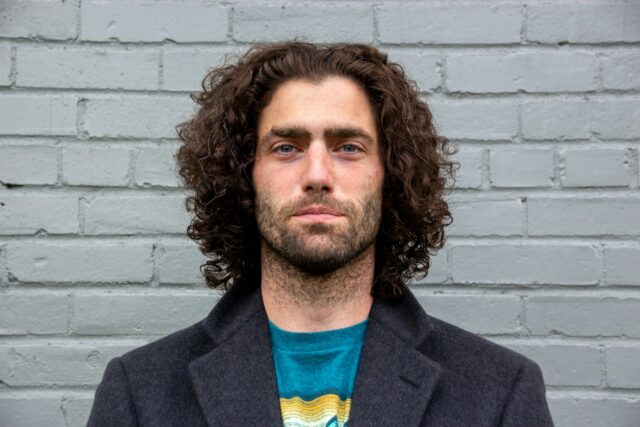Childhood emotional neglect can leave you with issues that can impact you well into adulthood.

If you grew up with parents who were emotionally absent, dismissive, or self-involved, you might be carrying wounds you can’t even see. These unmet emotional needs can get triggered in your adult life, causing you to feel overwhelmed, anxious, or like you’re never good enough. In fact, when these things happen, they might just set off the most extreme reactions in you.
1. Feeling invisible in social situations

Do you often feel unseen or unheard in groups, like you could disappear and no one would notice? This is a common trigger stemming from childhood emotional neglect. You learned early on that your thoughts and feelings didn’t matter, so you expect to be ignored. Challenge this belief by reminding yourself that you deserve to take up space. Start speaking up and sharing your opinions, even if it feels uncomfortable at first. The more you assert your presence, the more you’ll realise how much you matter.
2. Receiving compliments or praise

If your parents rarely acknowledged your accomplishments growing up, genuine compliments might make you squirm. You brush off praise, downplay your achievements, or wonder if the other person has an ulterior motive. Sound familiar? Realise that this discomfort comes from a lack of emotional validation in childhood — not because you’re undeserving of kind words. Start by saying a simple “thank you” when someone recognises your efforts. Allow yourself to bask in the glow of a job well done, even if just for a moment.
3. Expressing your emotional needs

Childhood emotional neglect teaches you to stuff down your feelings and soldier on independently. You learned not to rely on anyone for comfort or support. So as an adult, clearly expressing your emotional needs — whether to a partner, friend, or boss — might make you feel painfully vulnerable and exposed. Push past this trigger by reminding yourself that asking for help is a sign of strength, not weakness. Start small by opening up to someone you trust about something that’s bothering you. Gradually build your emotional vocabulary and self-advocacy skills.
4. Receiving gifts or special treatment

Does your birthday or Christmas fill you with more dread than excitement? Do you hate being the centre of attention, or feel unworthy of gifts and special treatment? This is a common trigger for those with childhood emotional neglect. You grew up believing your wants and needs were unimportant, so being showered with love and generosity feels foreign and uncomfortable. Do your best to start receiving with grace and gratitude. Remind yourself that you are worthy of care and celebration, even if you didn’t receive much growing up.
5. Feeling dependent on people

Childhood emotional neglect forces you to grow up too fast and become prematurely self-reliant. So as an adult, depending on anyone — whether practically, financially, or emotionally — might trigger deep fears of vulnerability and powerlessness. You micromanage everything yourself to avoid feeling needy or burdensome. But humans are interdependent creatures; we’re meant to lean on each other. Try to start delegating tasks bit by bit and letting other people help you, even in small ways. Embrace the discomfort of depending on someone else and your relationships will get so much stronger.
6. Being around kids or families
 Source: Unsplash
Source: Unsplash Seeing happy, emotionally connected families might stir up grief, anger, or a sense of deep defectiveness. You’re triggered by what you missed out on and find yourself either overcompensating with your own children or avoiding kid-centred activities altogether. While you can’t change your childhood, you can reparent yourself with compassion and care. Nurture your inner child through playfulness, comfort, and boundary setting. Spend time around families who model the warmth and closeness you craved. Slowly rewire your brain for secure attachment.
7. Feeling misunderstood
 Source: Unsplash
Source: Unsplash Do you often feel like no one really “gets” you, even those closest to you? This trigger often stems from having your feelings repeatedly dismissed or misunderstood in childhood. You learned to hide your true self because it wasn’t safe to be emotionally vulnerable. As an adult, practise expressing yourself authentically, even if it doesn’t always resonate with other people. Seek out friends and partners who validate your feelings and make an effort to understand your inner world. Remember, true belonging starts with self-acceptance.
8. Being criticised or getting feedback
 Source: Unsplash
Source: Unsplash If your parents were harshly critical or never gave constructive feedback, you might be hypersensitive to even mild critiques. Your heart races, your palms sweat, and you either get defensive or shut down completely. Recognise that not all feedback is an attack on your worth as a person. Take a deep breath and try to extract the useful information without globalising it to your entire identity. With practice, you can learn to receive feedback as an opportunity for growth rather than a threat to your sense of self.
9. Feeling stuck or stagnant
 Source: Unsplash
Source: Unsplash Childhood emotional neglect can leave you with a chronic feeling of emptiness or lack of direction. You might be triggered by stagnation in your career, relationships, or personal growth, but feel powerless to change. This inertia often stems from a lack of self-awareness and initiative that wasn’t nurtured in childhood. Start by reconnecting with your authentic desires and passions. What lights you up? What would you do if fear wasn’t a factor? Take one small step in that direction, even if you can’t see the whole staircase.
10. Being around authority figures
 Source: Unsplash
Source: Unsplash If your parents were emotionally immature or inconsistent, you might find yourself triggered by authority figures like bosses, teachers, or even older relatives. You either rebel against their leadership or become overly compliant, desperate for their approval. Recognise that your adult relationships don’t have to mimic the power dynamics of your childhood. Take time to learn how to relate to authority figures as equals, with respect but not fear. Remember, their validation or lack thereof doesn’t determine your worth.
11. Experiencing relationship conflict
 Source: Unsplash
Source: Unsplash Emotional neglect in childhood often leads to an anxious-avoidant attachment style, where you crave intimacy but fear rejection. You might be triggered by the slightest hint of conflict in your relationships, either lashing out or withdrawing completely. Slowly begin expressing your needs and fears directly, without blame or defensiveness. Seek partners who are willing to work through conflicts with patience and care. With time and trust, you can learn to tolerate the natural ebbs and flows of intimate relationships.
12. Seeing other people succeed
 Source: Unsplash
Source: Unsplash Do you feel a twinge of envy or inadequacy when other people achieve their goals? This is a common trigger for those with childhood emotional neglect, who often internalise a deep sense of undeservingness. Recognise that success is not a zero-sum game. Being happy for other people’s achievements doesn’t diminish your own potential for greatness. Start reframing other people’s successes as inspiration rather than competition. Use their achievements as fuel for your own growth and self-improvement.
13. Making big decisions
 Source: Unsplash
Source: Unsplash If your parents were overcontrolling or neglectful, you might struggle with decision paralysis as an adult. Even small choices feel monumental because you never learned to trust your own judgement. Start flexing your decision-making muscles by practising on low-stakes choices, like what to eat for dinner or which book to read next. Gradually work up to bigger decisions, reminding yourself that mistakes are opportunities for learning, not catastrophes. With practice, you’ll develop a stronger sense of self-trust and autonomy.
14. Being alone
 Source: Unsplash
Source: Unsplash Solitude can be triggering for those with childhood emotional neglect, who often equate being alone with being unloved or forgotten. You might compulsively seek out company or distraction to avoid the discomfort of your own thoughts and feelings. But learning to be alone is a crucial life skill. Start by carving out small pockets of intentional solitude, even just 10 minutes a day. Use this time to indulge in a bit of self-care, meditation, or a hobby you enjoy. Gradually increase your tolerance for alone time, reframing it as an opportunity for self-discovery and growth.
15. Feeling emotionally overwhelmed
 Source: Unsplash
Source: Unsplash If your emotional needs were chronically unmet in childhood, you might find yourself easily overwhelmed by strong feelings as an adult. You either shut down and go numb or become flooded with intense emotions you don’t know how to regulate. Try naming and validating your feelings without judgement. Develop a toolbox of healthy coping strategies, like deep breathing, journaling, or talking to a therapist. Remember, emotions are temporary visitors, not permanent residents. With practise, you can learn to ride the waves of big feelings without getting pulled under.




